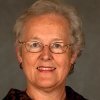Third International Conference on the Development and Assessment of Intercultural Competence
Intercultural Competence and Foreign/Second Language Immersive Environments
About the Conference
Intercultural competence is [the ability] “to see relationships between different cultures – both internal and external to a society – and to mediate, that is interpret each in terms of the other, either for themselves or for other people.” It also encompasses the ability to critically or analytically understand that one’s “own and other cultures’” perspective is culturally determined rather than natural.
—Byram, M. (2000). Assessing intercultural competence in language teaching. Sprogforum, 18 (6), 8-13.
Globalization, having brought individuals in contact with one another at an unprecedented scale, has also brought forth a general challenge to traditionally recognized boundaries of nation, language, race, gender, and class. For those living within this rapidly changing social landscape, intercultural competence–as defined by Michael Byram above–is a necessary skill, and the cultivation of such intercultural individuals falls on the shoulders of today’s educators.
The conference aims to bring researchers and practitioners across languages, levels, and settings to discuss and share research, theory, and best practices and to foster meaningful professional dialogue on issues related to the development and assessment of Intercultural Competence in a foreign or second language.
Keynote and Plenary Presentations
Keynote Address
Keynote Title: Reconsidering Crosscultural Abilities: The Link to Language Learning and Assessment
Speaker: Heidi Byrnes, Georgetown University, Washington, D.C. (United States)
 Heidi Byrnes, Ph.D, is George M. Roth Distinguished Professor of German at Georgetown University. Her research focuses on the acquisition of academic literacy in a second language by adult instructed learners from curricular and pedagogical perspectives. Recent co-authored, edited, and co-edited book publications include:Educating for Advanced Foreign Language Capacities: Constructs, Curriculum, Instruction, Assessment (2006); Advanced Language Learning: The Contribution of Halliday and Vygotsky (2006), The Longitudinal Study of Advanced L2 Capacities (Routledge, 2008), and Realizing Advanced Foreign Language Writing Development in Collegiate Education: Curricular Design, Pedagogy, Assessment (MLJ, 94, Supplement-1, 2010). As Associate Editor of the Modern Language Journal, Byrnes edits “Perspectives,” which deals with diverse issues in language education and policy. She has been active in the major professional organizations, the Northeast Conference, AATG, ACTFL, MLA, and AAAL, an organization for which she currently serves as president. In 1989 the American Association of Teachers of German recognized her with its outstanding educator award at the postsecondary level. In 2002 the Association of Departments of Foreign Languages recognized her with the Award for Distinguished Service in the Profession; and in 2004 she received the ACTFL Nelson Brooks Award for the teaching of culture.
Heidi Byrnes, Ph.D, is George M. Roth Distinguished Professor of German at Georgetown University. Her research focuses on the acquisition of academic literacy in a second language by adult instructed learners from curricular and pedagogical perspectives. Recent co-authored, edited, and co-edited book publications include:Educating for Advanced Foreign Language Capacities: Constructs, Curriculum, Instruction, Assessment (2006); Advanced Language Learning: The Contribution of Halliday and Vygotsky (2006), The Longitudinal Study of Advanced L2 Capacities (Routledge, 2008), and Realizing Advanced Foreign Language Writing Development in Collegiate Education: Curricular Design, Pedagogy, Assessment (MLJ, 94, Supplement-1, 2010). As Associate Editor of the Modern Language Journal, Byrnes edits “Perspectives,” which deals with diverse issues in language education and policy. She has been active in the major professional organizations, the Northeast Conference, AATG, ACTFL, MLA, and AAAL, an organization for which she currently serves as president. In 1989 the American Association of Teachers of German recognized her with its outstanding educator award at the postsecondary level. In 2002 the Association of Departments of Foreign Languages recognized her with the Award for Distinguished Service in the Profession; and in 2004 she received the ACTFL Nelson Brooks Award for the teaching of culture.
Abstract
Developing cross-cultural abilities has traditionally been associated with learning a non-native language. At the same time, the language profession has not been entirely successful at making a principled case for how language as a meaning-making system in and of itself is deeply implicated in ways of cultural knowing. By extension, it has also not considered the activity of learning a second language, including learning it in an instructed setting, as developing new forms of cross-cultural knowing.
Dr. Byrnes will pursue these issues from three perspectives: First, from the standpoint of language as a semiotic system, she will explore how language is ‘naturally’ functional, that is, how the resources of a language itself, including its grammar, are meaningful.
Second, because learning a second language in educational settings is about learning content, including cultural content, Byrnes will propose that a language-based approach to knowing presents ‘critical thinking’ as a form of multivoicedness and will argue that such an approach is particularly well suited to an increasingly globalized world.
Finally, because educational contexts are inherently charged with assessing students’ learning, Byrnes will consider how the construct of multivoicedness, as theorized in systemic functional linguistics, can make cultural knowing in and through and with a second language visible. In that fashion such learning not only becomes amenable to being assessed but also to being appropriately valued in educational contexts.
Plenary Addresses
Plenary Title:Exploring the Intercultural Dimensions of Cross-Border Language Learning
Speaker: Celeste Kinginger, Pennsylvania State University (United States)
 Celeste Kinginger, Ph.D.,is Professor of Applied Linguistics and French at Penn State University where she teaches courses in second language education, research methods, and French. Her research program focuses on qualitative variation in learning experiences and its developmental consequences for both language learners and their teachers. She lectures and publishes on a variety of related topics, including environments for language learning, cross-cultural autobiography, and foreign language teacher education.
Celeste Kinginger, Ph.D.,is Professor of Applied Linguistics and French at Penn State University where she teaches courses in second language education, research methods, and French. Her research program focuses on qualitative variation in learning experiences and its developmental consequences for both language learners and their teachers. She lectures and publishes on a variety of related topics, including environments for language learning, cross-cultural autobiography, and foreign language teacher education.
Abstract
Many applied linguists and language educators accept the notion that language and culture learning are inextricably linked. Neologisms such as ‘languaculture’ (Agar, 1994) represent the profession’s resolve to overcome the dual legacy of structuralist emphasis on language as a system abstracted from use and of utilitarianism’s strict focus on the instrumental in language education. Yet, in research on study abroad, relatively little attention is given to the intercultural in relation to language learning. In this talk Dr. Kinginger will first trace several lines of inquiry leading to the intercultural aspects of cross-border language learning. These include research on the development of pragmatic competencies, studies of language socialization in specific interactive contexts, and ethnographic or other qualitative investigations analyzing students’ own accounts of their experiences. Kinginger will then outline some limitations of this research in terms of its ability to enhance our understanding of language learning as an intercultural phenomenon. Finally, she will offer a wish list of design features for the future of research on language learning abroad, emphasizing the need to reframe both the topic of the research and the research itself as collaborative, dialogic, and truly intercultural activities.
Agar, M. (1994). Language shock: Understanding the culture of conversation. New York: William Morrow & Co.
Access to the list of references
Plenary Title:Intercultural Competence of Heritage Language Learners: Motivation, Identity, Language Attitudes and the Curriculum
Speaker: Olga Kagan, University of California, Los Angeles (United States)
 Olga Kagan, Ph.D. is Professor, Coordinator, and Undergraduate Advisor in the UCLA Russian Language Program. She is Director of the UCLA Center for World Languages and National Heritage Language Resource Center; Director of the UCLA Russian Flagship Program, and Co-editor of the Heritage Language Journal. She is a Member of the Board of Directors of the American Council of Teachers of Russian. Her main research and teaching interests are heritage language learners. In 2000, she co-authored a textbook, Russian for Russians, for students who speak Russian at home but do not have sufficient literacy in the language.
Olga Kagan, Ph.D. is Professor, Coordinator, and Undergraduate Advisor in the UCLA Russian Language Program. She is Director of the UCLA Center for World Languages and National Heritage Language Resource Center; Director of the UCLA Russian Flagship Program, and Co-editor of the Heritage Language Journal. She is a Member of the Board of Directors of the American Council of Teachers of Russian. Her main research and teaching interests are heritage language learners. In 2000, she co-authored a textbook, Russian for Russians, for students who speak Russian at home but do not have sufficient literacy in the language.
Abstract
Heritage language learners differ from typical L2 students in a variety of ways, including:
-
their language proficiencies;
-
reasons for studying their home language in the formal setting of a foreign language classroom; and
-
perception of themselves as Americans and, at the same time, the “other.”
Dr. Kagan will discuss the results of a national survey that demonstrates heritage language learners’ intrinsically intercultural attitude toward their heritage language. She will also focus on specific pedagogical implications of the learners’ identities, motivations, and language perceptions for the heritage language curriculum.
Plenary Title: Targeting the Target Language: Strategies in a Multilingual Environment
Speaker: David Fenner, World Learning (United States)
 David Fenner came to World Learning from the University of Washington where he was Assistant Vice Provost for International Education. He lived in the Sultanate of Oman from 1979 to 1982 where he served as a Peace Corps Volunteer and worked for the United Nations Development Project. Following his return to the US and for the next 24 years, David coordinated international programs and exchanges for the University of Washington in Seattle. During that time, he negotiated and administered over 200 partnership agreements with universities around the world. He lived in Muscat again from 2007-2010 to establish and direct the World Learning Center in Oman.
David Fenner came to World Learning from the University of Washington where he was Assistant Vice Provost for International Education. He lived in the Sultanate of Oman from 1979 to 1982 where he served as a Peace Corps Volunteer and worked for the United Nations Development Project. Following his return to the US and for the next 24 years, David coordinated international programs and exchanges for the University of Washington in Seattle. During that time, he negotiated and administered over 200 partnership agreements with universities around the world. He lived in Muscat again from 2007-2010 to establish and direct the World Learning Center in Oman.Abstract
Of the many challenges along the path to achieving intercultural competence in a foreign language is the necessity for untangling the target language from a potentially frustrating “they’re speaking in tongues!” language learning environment. Foreign language students around the world seldom live and study in monolingual environments.
World Learning’s experience in Oman – where an American student of Arabic might live with a Swahili-speaking host family and buy all her groceries from an Urdu speaker while “friending” someone back home in English – presented them with an at-times vexing range of pedagogical and programmatic decision-points. These revolved around the question of how to zero in on the target language amid what students sometimes felt to be a cacophonous – or even unfair – learning environment. Add to this the “diglossic” nature of spoken and Modern Standard Arabic, and you can quickly see how some students came to feel the language acquisition deck was stacked against them.
This plenary will explore which of these decisions led to strategies that improved results, and which ones were quickly (or should have been!) abandoned. Among these are language pledges, peer tutors, news media, educational technologies, exclusive use of the target language in the classroom, and variations in “exposure” time to activate (using the good term of Brustad, et al.) new skills. Lastly, the talk will advocate for intentional partnerships between and among students, teachers, administrators and the larger community to create the kind of environment and policies that allow students to hit their target and their stride in learning a second language.
Plenary Title: Intercultural In/competence: The Top Challenge for Guest Chinese Teachers in US Schools
Speaker: Jun Liu, Georgia State University (United States)
 Jun Liu is Associate Provost for International Initiatives, Chief International Officer, and Professor of Applied Linguistics at Georgia State University in Atlanta, USA. Prior to this position, he served as Professor and Head in the Department of English and Director of Confucius Institute at the University of Arizona between 2007 and 2011. His research interests include language planning, curriculum and standards development and syllabus design, teacher education, classroom-based second language learning and teaching, second language reading and writing, and intercultural communication. He has published in TESOL Quarterly, ELT Journal, Journal of English for Academic Purposes, Journal of Asian Pacific Communication, Asian Journal of English Language Teaching, Language and Intercultural Communication, and Educational Research Quarterly, among others. He is the author of numerous books including Teaching English in China: New Perspectives, Approaches and Standards(The Continuum Publishing 2007), Asian students’ classroom communication patterns in US universities(Greenwood Publishing Group, 2001) and Peer Response in Second Language Writing Classrooms (University of Michigan Press, 2002 co-authored). He is also co-editor of Michigan Series on Teaching Multilingual Writers. Past President of TESOL (2006-2007), Dr. Liu is currently TESOL Representative in China and on the Board of Trustees of TIRF (The International Research Foundation for English Language Education http://www.tirfonine.org). Liu is also Vice President of International Society of Chinese Language Teaching (ISCLT) and senior advisor for Office of Chinese Language International (Hanban) in Beijing, China.
Jun Liu is Associate Provost for International Initiatives, Chief International Officer, and Professor of Applied Linguistics at Georgia State University in Atlanta, USA. Prior to this position, he served as Professor and Head in the Department of English and Director of Confucius Institute at the University of Arizona between 2007 and 2011. His research interests include language planning, curriculum and standards development and syllabus design, teacher education, classroom-based second language learning and teaching, second language reading and writing, and intercultural communication. He has published in TESOL Quarterly, ELT Journal, Journal of English for Academic Purposes, Journal of Asian Pacific Communication, Asian Journal of English Language Teaching, Language and Intercultural Communication, and Educational Research Quarterly, among others. He is the author of numerous books including Teaching English in China: New Perspectives, Approaches and Standards(The Continuum Publishing 2007), Asian students’ classroom communication patterns in US universities(Greenwood Publishing Group, 2001) and Peer Response in Second Language Writing Classrooms (University of Michigan Press, 2002 co-authored). He is also co-editor of Michigan Series on Teaching Multilingual Writers. Past President of TESOL (2006-2007), Dr. Liu is currently TESOL Representative in China and on the Board of Trustees of TIRF (The International Research Foundation for English Language Education http://www.tirfonine.org). Liu is also Vice President of International Society of Chinese Language Teaching (ISCLT) and senior advisor for Office of Chinese Language International (Hanban) in Beijing, China.Abstract
Due to the high demand for Chinese language classes in K-12 schools in the US, every year the Office of Chinese Language Council International (known as Hanban) sends more than 100 guest teachers to the US. Most of these guest teachers go through a training program prior to their departure.
As chief designer for Standards for Teachers of Chinese to Speakers of Other Languages as well as Chinese Language Teacher Training Programs, Liu recently conducted an ethnographic study to understand the challenges and difficulties these guest teachers encounter and also strategies they use to deal with the challenges. An on-line survey coupled with on-site visits and interviews with guest teachers, school principals, and host families reveal that the No. 1 challenge these teachers face is intercultural incompetence while being immersed in the US environment.
Implications will be discussed with regards to curriculum development and course design for the training programs, methodology of teacher training, and selection criteria for guest teachers. Liu will further point out that intercultural competence cannot be learned, but acquired and experienced in immersive environments which can be designed through simulation, sharing, observing, and reflection.
Plenary Title: Pulsating Galactic Classrooms, Immersion Environments, Individual vs. Group Language Learning at Home and Abroad
Speaker: Judith M. Maxwell, Tulane University (United States)
 Judith M. Maxwell is Full Professor of Anthropology at Tulane University and head of the Interdisciplinary Program in Linguistics. She began her work with Mayan languages and speech communities in Guatemala in 1976. Having begun with Chuj and Ixil, she has since worked with Yucatec, Tojolab’al, Q’anjob’al, Popti’, Mam, Poqomam, Poqomchi’, Tz’utujiil, Sakapulteko, Uspanteko, Sipakapense, K’ichee’ and Tz’utujiil. She teaches courses at Tulane on Nahuatl, Yucatec, and Kaqchikel. For the past 24 years she has run a field school on Kaqchikel Language and Culture, Oxlajuj Aj. In Guatemala, she has served as a consultant to the Proyecto Lingüístico Francisco Marroquín the Academia de las Lenguas Mayas de Guatemala, UNICEF, and the Ministerio de Educación. Her recent publications include La Ütz Awäch: Introduction to Kaqchikel Language, Tijonïk Kaqchikel Oxlajuj Aj, Rub’eyal Tijonïk Ruka’n Ch’ab’äl, Kaqchikel Chronicles, and Kulik Kaqchikela’ pa Iximulew.
Judith M. Maxwell is Full Professor of Anthropology at Tulane University and head of the Interdisciplinary Program in Linguistics. She began her work with Mayan languages and speech communities in Guatemala in 1976. Having begun with Chuj and Ixil, she has since worked with Yucatec, Tojolab’al, Q’anjob’al, Popti’, Mam, Poqomam, Poqomchi’, Tz’utujiil, Sakapulteko, Uspanteko, Sipakapense, K’ichee’ and Tz’utujiil. She teaches courses at Tulane on Nahuatl, Yucatec, and Kaqchikel. For the past 24 years she has run a field school on Kaqchikel Language and Culture, Oxlajuj Aj. In Guatemala, she has served as a consultant to the Proyecto Lingüístico Francisco Marroquín the Academia de las Lenguas Mayas de Guatemala, UNICEF, and the Ministerio de Educación. Her recent publications include La Ütz Awäch: Introduction to Kaqchikel Language, Tijonïk Kaqchikel Oxlajuj Aj, Rub’eyal Tijonïk Ruka’n Ch’ab’äl, Kaqchikel Chronicles, and Kulik Kaqchikela’ pa Iximulew.
Abstract
Some constants of language learning are “cultural immersion and relevance”, “creating safe environments for learning”, and “full involvement of the student in the language acquisition process”. Oxlajuj Aj, the Tulane summer intensive Language and Culture class, has been running now for 24 years. Over this time these principles have held, while the “classroom” experience “pulsated” around them. The course as instantiated in Guatemala has a near one-to-one native speaker teacher to student ratio. New material can be presented in dramatizations with multiple “actors”, while other teachers remain among the student viewers and can elucidate. At each stage in the five-step process of moving from passive reception to active production teachers are literally at the students’ sides, encouraging, whispering, supporting, modelling the language. Practice sessions expand and contract from tutorials to dyads to small groups and back. Regular interaction with the host community keeps the language relevant in the students’ daily rounds.
Yet this luxurious model of multiple teachers in a classroom is often rendered infeasible by salary considerations. Nonetheless, master teachers from Oxlajuj Aj are “colonizing” more traditional classroom settings in Guatemala. One teacher using the methodology solo successfully ran a week-end course for 45 students; another has transferred the techniques to teaching 8-12 graders. At Tulane this Fall semester we have scaled down to two teachers in the classroom, with the participation of veteran students adding to the dynamism.
Learning outcomes from these enriched language learning environments confirm that students who take risks and speak learn; students who opt out by giving minimal responses (no response being disallowed) consistently score lower on both oral and written evaluations. Movement, laughter, games, and application hold the key to fostering the confidence to speak. Interaction with host communities provides both re-enforcement and reward for the effort at learning the language.
Watch the CERCLLUA Youtube Video
Access to the PPT Slides upon request
Workshops
Intercultural Dialogue in the Military Science Curriculum
Lynn-Eddy Zambrano, Project GO Intercultural Dialogue Facilitator, Language Acquisition Resource Center (LARC); CPT Wil Lynch, LARC-ROTC/Project GO Liaison, ROTC; Mana Mohtasham, LARC; and Chris Brown, LARC, San Diego State University
Sponsored by LARC
In the spring of 2011, the Language Acquisition Resource Center (LARC) and the Department of Military Science/Army Reserve Officer Training Corps (ROTC) at San Diego State University (SDSU) conducted a series of cross-cultural dialogues between cadets and international undergraduate and graduate students. A pilot program of Project GO (Global Officers), a Department of Defense initiative administered by the Institute of International Education for the National Security Education Program (NSEP) and the Defense Language Office, student-to-student dialogues are part of the broader Project GO effort “aimed at improving the language skills, regional expertise, and intercultural skills of future military officers.” In this workshop, four key SDSU Project GO team members will present, from the perspectives of their specific roles in the pilot, the conceptual bases of the program, its implementation, outcomes and new insights:
Mr. Chris Brown, Program Leader: the integration of leadership theory and practice into experiential cross-cultural activities with specific reference to Ken Wilbur’s integral systems model and the work of Ronald Heifetz.
Ms. Lynn-Eddy Zambrano, Dialogue Session Facilitator: building community and creating the dialogue space; scaffolding experiential, discussion and dialogue activities. Samples of effective strategies will be demonstrated.
CPT Wil Lynch, ROTC liaison for the program: the integration of cross-cultural competencies and interactions into the military science curriculum.
Ms. Mana Mohtasham, Program Coordinator and former international graduate student: the role of international student participants, technical and adaptive challenges for them, and approaches to overcoming obstacles.
Designing VoiceThread Activities to Promote Intercultural Competence
Erin McCloskey, University of Wisconsin-Madison
Images and video are useful springboards for intercultural competence development, but we must carefully design visually-based activities to ensure meaningful learning. In this workshop participants will learn how to use VoiceThread, a flexible, easy-to-use, web-based tool, to promote intercultural competence by learning through visuals.
In foreign language education, we often fall prey to a “Field of Dreams” mentality about intercultural communicative competence (ICC): if we provide cultural content, the students’ ICC will magically develop. While the Internet can solve the “access problem” by delivering abundant sources of cultural information to our desktop doorstep, access will never equate with learning. Students must be carefully shepherded through a process of interpreting, relating, discovering and interacting with that content in order to become more interculturally competent (Byram, 1997).
This workshop will help language instructors to consider the essential components of an educational experience that promote ICC, and how to design an activity to include those components, using images as the catalyst. Only then will we ask how a particular tool, in this case VoiceThread, can help us to achieve those objectives. This workshop targets VoiceThread because its main purpose is to facilitate engagement with visual images (still and moving). Photos and videos are rich sources of cultural content, readily available, appropriate for all language levels, and excellent catalysts for intra- and intercultural investigations. By allowing students to comment on images or videos, respond to each other and respond to an instructor, VoiceThread promotes the three kinds of interaction that are desirable in technologically-mediated learning: student-student, student-instructor, and student-content (Moore, 1986). Also, VoiceThead allows various modes of expression (written, audio, video), which is useful in the language classroom. Finally, VoiceThread offers instructors several ways of organizing those interactions and customizing the degree and nature of the control they exert over the learning experience. The workshop will address how VoiceThread can be used both by instructors to promote ICC and by students to demonstrate their competence.
Techniques for the Teaching and Assessment of Intercultural Competence
Peter Ecke, Center for Educational Resources in Culture, Language, and Literacy (CERCLL), University of Arizona
This workshop will examine techniques that are potentially suited for the teaching and assessment of intercultural competence (ICC) in study-at-home and study-abroad contexts. Participants will start out discussing the concept of ICC, objectives for the teaching of ICC and the need to assess progress in the development of ICC. They will then explore and analyze a variety of teaching and assessment techniques and their usefulness in different learning environments.
Techniques that will be examined are (1) quantifiable multiple choice tests, (2) self-assessment questionnaires, (3) critical incident analyses, (4) simulation games, (5) reflective journals, (6) interviews, and (7) portfolios, used for teaching and assessment purposes. Some data will be presented from a research project with participants of a one-month summer study abroad program to illustrate the potential of two of these techniques.
In the last part of the workshop, participants will choose a technique and work in small groups on a project in which they will design their own unit for the teaching and assessment ofa specific aspect of ICC development.
The Interface of Language and Culture
James P. Lantolf, Center for Advanced Language Proficiency Education and Research (CALPER), Pennsylvania State University
Sponsored by CALPER
The focus of this workshop is on the interface of language and culture as manifested in linguistic and conceptual metaphors. Metaphors are not merely ways of speaking but represent the ways in which a community thinks and acts grounded in specific kinds of culturally organized experiences. The workshop first considers how metaphors (and related forms of figurative language, e.g., metonymy) are constructed; next it will discuss cross-cultural differences in metaphors; it will then explore some of the most recent pedagogical approaches on teaching and learning metaphors in second language classrooms. Participants will have the opportunity to develop a lesson for the teaching of metaphor in their particular language. Examples will be drawn from English, Chinese, Spanish, Russian and Korean.
The Use of Images in the Development of Intercultural Competence
Szu-Yueh Chien, University of Georgia
A picture is worth a thousand words. A brief overview of theoretical and research foundation in using images to understand and to help students develop the intercultural competence will be provided. Participants are asked to bring their laptops and several images they took when they traveled in foreign countries.
Hands-On Training on using Web 2.0 to Teach Culture
Mohammed Tamimi, University of Arizona
This workshop aims at training K-16 teachers on using Web 2.0 tools to teach culture. Participants will be introduced to techniques, strategies, and examples that use such tools in teaching culture. In addition, participants get to work in groups to develop their own lessons to teach culture using such technologies.
Documenting Interculturality with LinguaFolio
Carl Falsgraf, Center for Applied Second Language Studies, University of Oregon (CASLS), and Adriana Brandt, IUPUI School of Education
Sponsored by CASLS
This workshop will show practitioners and researchers how to use the Interculturality module of LinguaFolio Online to enhance and document learners emerging cultural awareness. Based on the work of Michael Byram and the notion of interculturality from the Common European Framework of Reference, this approach rests on the idea of an encounter. An encounter could be with a person of a certain culture or through media that creates some sort of impression. When learners experience an encounter, they begin by recording their emotional response to the encounter. They then reflect on the background knowledge they brought to the encounter and what knowledge they might need to better understand the encounter. Finally, they posit changes in their actions or behaviors going forward. This represents an iterative record of the learners’ attempts to come to terms in their own personal way with the challenges posed by a cultural encounter. Participants will be shown how the tool can be used and its pedagogic and theoretical underpinnings. They will also be able to view and analyze existing student reflections. All participants will be given access to LinguaFolio and have an opportunity to develop lesson plans incorporating the Interculturality module.
Conference Organizers
ICC 2012 was organized by the Center for Educational Resources in Culture, Language and Literacy (CERCLL).
Co-organizers:
Co-sponsors (University of Arizona):
Additional co-sponsors:

